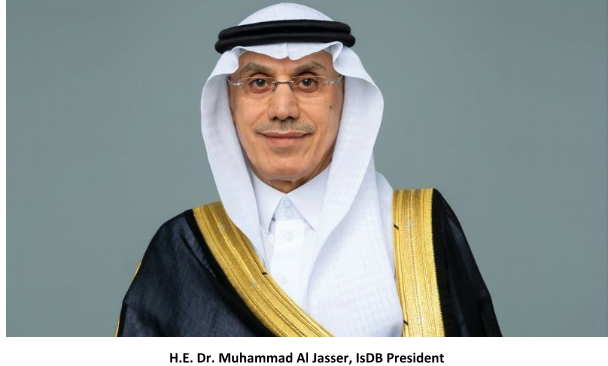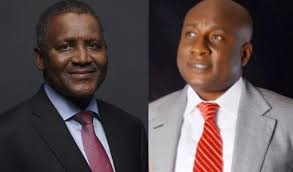BUSINESS & ECONOMY
The Black sea protection initiative: What should we remember?
Published
3 years agoon
By
Editor
Climate change is widespread, rapid, and intensifying, and some trends are now irreversible, at least during the present time frame, according to the latest much-anticipated Intergovernmental Panel on Climate Change (IPCC) report, released on Monday.
Human-induced climate change is already affecting many weather and climate extremes in every region across the globe. Scientists are also observing changes across the whole of Earth’s climate system; in the atmosphere, in the oceans, ice floes, and on land.
Many of these changes are unprecedented, and some of the shifts are in motion now, while some – such as continued sea level rise – are already ‘irreversible’ for centuries to millennia, ahead, the report warns.
But there is still time to limit climate change, IPCC experts say. Strong and sustained reductions in emissions of carbon dioxide (CO2) and other greenhouse gases, could quickly make air quality better, and in 20 to 30 years global temperatures could stabilize.
‘Code red for humanity’
The UN Secretary-General António Guterres said the Working Group’s report was nothing less than “a code red for humanity. The alarm bells are deafening, and the evidence is irrefutable”.
He noted that the internationally-agreed threshold of 1.5 degrees above pre-industrial levels of global heating was “perilously close. We are at imminent risk of hitting 1.5 degrees in the near term. The only way to prevent exceeding this threshold, is by urgently stepping up our efforts, and persuing the most ambitious path.
“We must act decisively now, to keep 1.5 alive.”
The UN chief in a detailed reaction to the report, said that solutions were clear. “Inclusive and green economies, prosperity, cleaner air and better health are possible for all, if we respond to this crisis with solidarity and courage“, he said.
He added that ahead of the crucial COP26 climate conference in Glasgow in November, all nations – especiall the advanced G20 economies – needed to join the net zero emissions coaltion, and reinforce their promises on slowing down and reversing global heating, “with credible, concrete, and enhanced Nationally Determined Contributions (NDCs)” that lay out detailed steps.
Human handiwork
The report, prepared by 234 scientists from 66 countries, highlights that human influence has warmed the climate at a rate that is unprecedented in at least the last 2,000 years.
In 2019, atmospheric CO2 concentrations were higher than at any time in at least 2 million years, and concentrations of methane and nitrous oxide were higher than at any time in the last 800,000 years.
Global surface temperature has increased faster since 1970 than in any other 50-year period over a least the last 2,000 years. For example, temperatures during the most recent decade (2011–2020) exceed those of the most recent multi-century warm period, around 6,500 years ago, the report indicates.
Meanwhile, global mean sea level has risen faster since 1900, than over any preceding century in at least the last 3,000 years.
The document shows that emissions of greenhouse gases from human activities are responsible for approximately 1.1°C of warming between 1850-1900, and finds that averaged over the next 20 years, global temperature is expected to reach or exceed 1.5°C of heating.
Time is running out
The IPCC scientists warn global warming of 2°C will be exceeded during the 21st century. Unless rapid and deep reductions in CO2 and other greenhouse gas emissions occur in the coming decades, achieving the goals of the 2015 Paris Agreement “will be beyond reach”.
The assessment is based on improved data on historical warming, as well as progress in scientific understanding of the response of the climate system to human-caused emissions.
“It has been clear for decades that the Earth’s climate is changing, and the role of human influence on the climate system is undisputed,” said IPCC Working Group I Co-Chair, Valérie Masson-Delmotte. “Yet the new report also reflects major advances in the science of attribution – understanding the role of climate change in intensifying specific weather and climate events”.
Extreme changes
The experts reveal that human activities affect all major climate system components, with some responding over decades and others over centuries.
Scientists also point out that evidence of observed changes in extremes such as heatwaves, heavy precipitation, droughts, and tropical cyclones, and their attribution to human influence, has strengthened.
They add that many changes in the climate system become larger in direct relation to increasing global warming.
This includes increases in the frequency and intensity of heat extremes, marine heatwaves, and heavy precipitation; agricultural and ecological droughts in some regions; the proportion of intense tropical cyclones; as well as reductions in Arctic sea ice, snow cover and permafrost.
The report makes clear that while natural drivers will modulate human-caused changes, especially at regional levels and in the near term, they will have little effect on long-term global warming.
A century of change, everywhere
The IPCC experts project that in the coming decades climate changes will increase in all regions. For 1.5°C of global warming, there will be increasing heat waves, longer warm seasons and shorter cold seasons.
At 2°C of global warming, heat extremes are more likely to reach critical tolerance thresholds for agriculture and health.
But it won’t be just about temperature. For example, climate change is intensifying the natural production of water – the water cycle. This brings more intense rainfall and associated flooding, as well as more intense drought in many regions.
It is also affecting rainfall patterns. In high latitudes, precipitation is likely to increase, while it is projected to decrease over large parts of the subtropics. Changes to monsoon rain patterns are expected, which will vary by region, the report warns.
Moreover, coastal areas will see continued sea level rise throughout the 21st century, contributing to more frequent and severe coastal flooding in low-lying areas and coastal erosion.
Extreme sea level events that previously occurred once in 100 years could happen every year by the end of this century.
The report also indicates that further warming will amplify permafrost thawing, and the loss of seasonal snow cover, melting of glaciers and ice sheets, and loss of summer Arctic sea ice.
Changes to the ocean, including warming, more frequent marine heatwaves, ocean acidification, and reduced oxygen levels, affect both ocean ecosystems and the people that rely on them, and they will continue throughout at least the rest of this century.
Magnified in cities
Experts warn that for cities, some aspects of climate change may be magnified, including heat, flooding from heavy precipitation events and sea level rise in coastal cities.
Furthermore, IPCC scientists caution that low-likelihood outcomes, such as ice sheet collapse or abrupt ocean circulation changes, cannot be ruled out.
Limiting climate change
“Stabilizing the climate will require strong, rapid, and sustained reductions in greenhouse gas emissions, and reaching net zero CO2 emissions. Limiting other greenhouse gases and air pollutants, especially methane, could have benefits both for health and the climate,” highlights IPCC Working Group I Co-Chair Panmao Zhai.
The report explains that from a physical science perspective, limiting human-induced global warming to a specific level requires limiting cumulative carbon dioxide emissions, reaching at least net zero CO2 emissions, along with strong reductions in other greenhouse gas emissions.
“Strong, rapid and sustained reductions in methane emissions would also limit the warming effect resulting from declining aerosol pollution”, IPCC scientists underscore.
About the IPCC
The Intergovernmental Panel on Climate Change (IPCC) is the UN body for assessing the science related to climate change. It was established by the United Nations Environment Programme (UNEP) and the World Meteorological Organization (WMO) in 1988 to provide political leaders with periodic scientific assessments concerning climate change, its implications and risks, as well as to put forward adaptation and mitigation strategies.
In the same year the UN General Assembly endorsed the action by the WMO and UNEP in jointly establishing the IPCC. It has 195 member states.
Thousands of people from all over the world contribute to the work of the IPCC. For the assessment reports, IPCC scientists volunteer their time to assess the thousands of scientific papers published each year to provide a comprehensive summary of what is known about the drivers of climate change, its impacts and future risks, and how adaptation and mitigation can reduce those risks.
‘Before our very eyes’
Multiple, recent climate disasters including devastating flooding in central China and western Europe have focused public attention as never before, suggested Inger Andersen, Executive Director of the UN Environment Programme (UNEP).
“As citizens and as businesses and as governments, we are well aware of the drama,” she said “The drama exists, we have seen it and we heard about it in every news bulletin. And that’s what we need to understand, that the expression of what the science says is exhibited before our very eyes, and of course what this excellent report does is, it projects those scenarios outward, and tells us, if we do not take action, what could be the potential outcomes, or if we do take action, what will be a very good outcome.”
Climate adaption critical
Apart from the urgent need for climate mitigation, “it is essential to pay attention to climate adaptation”, said the WMO chief, Peteri Taalas, “since the negative trend in climate will continue for decades and in some cases for thousands of years.
“One powerful way to adapt is to invest in early warning, climate and water services“, he said.”Only half of the 193 members of WMO have such services in place, which means more human and economic losses. We have also severe gaps in weather and hydrological observing networks in Africa, some parts of Latin America and in Pacific and Caribbean island states, which has a major negative impact on the accuracy of weather forecasts in those areas, but also worldwide.
“The message of the IPCC report is crystal clear: we have to raise the ambition level of mitigation.”
Related
You may like
-


WEF and UN-Habitat Join Forces to Unlock Critical Investment in Cities through Public-Private Collaboration
-


5 ways countries can adapt to the climate crisis
-


The Development of Artificial Intelligence in China: Conclusions
-


Four ways the planetary crisis is impacting mental health
-


New European Bauhaus under Cohesion Policy: €50 million call for innovative projects in cities
-


The Development of Artificial Intelligence in China: Investment and attention to production
BUSINESS & ECONOMY
IsDB President Advocates for Cultivating Entrepreneurial Leaders
Published
16 hours agoon
April 30, 2024By
Editor
By Hafiz M. Ahmed
The 18th Global Islamic Finance Forum recently served as a prominent platform for discussions on advancing Islamic finance and fostering leadership in the entrepreneurial sector. During this notable event, the President of the Islamic Development Bank (IsDB) emphasized the critical need for nurturing entrepreneurial leaders to propel the growth of the Islamic finance industry. This blog post explores the insights shared by the IsDB President, the implications for the future of Islamic finance, and the strategies proposed to develop the next generation of leaders.
Key Highlights from the Forum
The Global Islamic Finance Forum, held annually, brings together experts, policymakers, and stakeholders from across the world to deliberate on the challenges and opportunities within Islamic finance. This year’s focus on entrepreneurial leadership underscores the sector’s evolution and its growing impact on global economies.
The IsDB President’s Vision
- Empowering Entrepreneurs. The IsDB President outlined a vision where empowerment and support for entrepreneurs are paramount. He highlighted the role of Islamic finance in providing ethical and sustainable funding options that align with the principles of Sharia law, offering a robust alternative to conventional financing methods.
- Education and Training. A significant part of the address was dedicated to the importance of education and specialized training in Islamic finance. The President called for enhanced educational programs that not only focus on the technical aspects of Islamic finance but also foster entrepreneurial thinking and leadership skills among students.
- Innovation in Financial Products. Recognizing the rapidly changing financial landscape, the call for innovation in designing financial products that meet the unique needs of modern businesses was emphasized. These innovations should aim to enhance accessibility, affordability, and suitability for diverse entrepreneurial ventures.
- Collaborative Efforts. The IsDB President advocated for increased collaboration between Islamic financial institutions and educational entities to create ecosystems that support and nurture future leaders. This collaboration is essential for developing a holistic environment where aspiring entrepreneurs can thrive.
- Supportive Policies: Lastly, the need for supportive governmental policies that facilitate the growth of Islamic finance was discussed. Such policies should encourage entrepreneurship, particularly in regions where access to financial services is limited.
Implications for the Future
The advocacy for entrepreneurial leaders in Islamic finance is timely, as the industry sees exponential growth and wider acceptance as a viable financial system globally. Cultivating leaders who not only understand the intricacies of Islamic finance but who are also capable of innovative thinking and ethical leadership is crucial for the sustainability and expansion of this sector.
Steps Forward
- Integrating Leadership into Curriculum: Educational institutions offering courses in Islamic finance should integrate leadership training into their curricula.
- Mentorship Programs: Establishing mentorship programs that connect experienced professionals in Islamic finance with emerging leaders.
- Fostering Start-up Ecosystems: Creating supportive environments for start-ups within the Islamic financial framework can encourage practical learning and innovation.
Conclusion
The call by the IsDB President to nurture entrepreneurial leaders in Islamic finance is a step toward ensuring the sector’s robust growth and its contribution to global economic stability. By focusing on education, innovation, and supportive policies, the Islamic finance industry can look forward to a generation of leaders who are well-equipped to navigate the complexities of the modern financial world and who are committed to ethical and sustainable business practices. This vision not only enhances the profile of Islamic finance but also contributes to a more inclusive and balanced global financial ecosystem.
BUSINESS & ECONOMY
Davos Really Comes to the Desert as the WEF Arrives in Riyadh
Published
18 hours agoon
April 30, 2024By
Editor
By Frank Kane
The World Economic Forum’s “Special Meeting” got off to a comparatively low-key start in Riyadh on Sunday – the first time Saudi Arabia has staged a full-blown WEF event after a few years of dancing around issues on both sides. Would the security-conscious Saudis allow the “men from Switzerland” the freedom to organise potentially controversial discussions with the abandon they sometimes display in Davos?
Would the Swiss be sufficiently aware of the red lines in the kingdom, all the more vivid in times of heightened regional geopolitical tensions?On the evidence of Day 1, there was sufficient give-and-take on both sides to produce a valuable and thought-provoking addition to the global forums circuit – even if it lacked some of the pizzazz of the Future Investment Initiative gathering known as “Davos in the desert” and the anarchic round-the-clock buzz of the WEF’s annual meeting in the Swiss Alps.
It was certainly smaller and less crowded than the other two events. The Saudi Royal Guard, who assumed responsibility for security at the Ritz-Carlton conference complex, ensured an orderly event, although some members of the international media had difficulty getting the necessary security clearance.
The theme of the two-day forum is “global collaboration, growth and energy for development”, which is a neat way of encapsulating the biggest issue of the day in global economic and politics: will geopolitics derail progress on climate change and economic development?
Saudi Arabia – at the cockpit of those tensions in the Middle East and a leading energy exporter – is the perfect place to consider the question. Mohammed Al Jadaan, the Saudi finance minister, set the tone in an early panel session with the grave warning that ”geopolitical risks are possibly the No 1 risk as you look at the global economy” and urged “agility” by policymakers to head off the threat.
Kristalina Georgieva, managing director of the International Monetary Fund, which is due to open a regional office in Riyadh, hammered home that message in a neat bit of alliteration: “We may end up with this decade being remembered as the Turbulent Twenties, or the Tepid Twenties, when what we actually want is the Transformational Twenties.”
The first of many “elephants in the room” – the risk of confrontation between Israel and Iran arising from the conflict in Gaza – was recognised when Mahmoud Abbas, the Palestinian president, arrived at the opening plenary session. No stranger to the Davos circuit, Abbas repeated his call for the US to push for a two-state solution, saying it was the only way to end the conflict. “Only they can do it,” he declared.
Kristalina Georgieva, IMF managing director, told the forum the decade should be remembered as ‘the Transformational Twenties’ Most of the WEF’s overarching themes came together in the first big set-piece devoted to energy. The session was called “People, policy, finance: realising an equitable energy transition” – and there were elephants aplenty in the chandeliered cavern of the plenary hall.
The hydrocarbon giants were well represented by Prince Abdulaziz bin Salman, Saudi Arabia’s energy minister, and his Qatari counterpart Saad Al Kaabi, as well as Darren Woods and Vicki Hollub, CEOs of ExxonMobil and Occidental, respectively. You had to feel sorry for Kadri Simson, the Estonian politician and EU energy commissioner, as she pitched a decidedly different view from her co-panellists. But Børge Brende, the WEF president and the session’s moderator, did his best to even up the odds. It was a clash between those destined for either “hydrocarbon hell or green heaven” – in the unattributable sarcasm of one senior energy policymaker – and though the debate stayed within civilised bounds, it had its moments.
Al Kaabi accused the environmental lobby of “demonising oil and gas for decades”; Woods called for an end to the “propaganda and politics”. The panel became heated when it came to the issue of what was the real “elephant in the room”. Was it coal? Or the cost of energy transition? Or subsidies for fossil fuels? Prince Abdulaziz cut through the rhetoric with the announcement that he had detected the “camel in the room”: the fact that the campaign against climate change cannot be waged within national boundaries, but has to be global.
Towards the end of the day a frisson went through the forum as it was whispered that Crown Prince Mohammed bin Salman, Saudi Arabia’s prime minister and the patron of the event, was on his way. He duly arrived, oversaw a private meeting of forum dignitaries and departed, with much security fanfare.
At the end of Day 1, I was just a little underwhelmed. The clinical Swiss lines of the WEF signage did not quite gel with the Arabic splendour of the King Abdulaziz International Conference Centre. I’m sure it just needs time.
Frank Kane is Editor-at-Large of AGBI and an award-winning business journalist. He acts as a consultant to the Ministry of Energy of Saudi Arabia and is a media adviser to First Abu Dhabi Bank of the UAE
BUSINESS & ECONOMY
Dangote, Air Peace and the Patriotism of Capital
Published
1 week agoon
April 23, 2024By
Editor
By Chidi Amuta
Money is perhaps a homeless vagrant. It has no nationality or permanent homestead in real terms. It goes and stays only where its masters are wise, prudent and far sighted. But in a world dominated by nations and their interests, real money is first a national asset and tool of governance and sovereign assertion. When money thus becomes a source of power, the nation whose flag the conquering company flies shows up to claim its own. Apple, Microsoft, Tesla, Coca Cola are synonymous with America. It is not because every American can walk off with a can of Coke from the supermarket without paying for it but because somewhere along the way, brand and nation have become fused and interchangeable. Every successful Business may aspire to an international identity but when the chips are down, every successful business needs to be anchored first on a specific sense of sovereign belonging. Ultimately, then, the companies to which sovereign wealth is usually ascribed have a final responsibility to that nation or sovereignty in times of trouble or goodness.
Make no mistake about it. Businesses are in business to succeed as businesses. To succeed as a business is to make tons of profit and invest in even more business and wealth creation. Sensible companies do not always overtly toe the government’s line. They instead buy into the hearts and minds of the citizens through the products they offer and how friendly their prices are.
Two Nigerian brands have recently stepped forward to identify with the citizens of our country in this moment of grave challenge and desperate self -inflicted hardship. Dangote and Air Peace are now on record as having risen to use their products, brand presence and pricing strategies to identify with and ameliorate some of the harrowing difficulties that Nigerians are currently going through.
The worst moments of our present economic travail may not be over just yet. The epidemic of hunger still looms over the land. Innocent people are still being trampled to needless death at palliative food centers. Some are getting squeezed to death while scrambling for tiny free cash. Inflation figures just got even worse at over 33.4%. Those who fled the country in awe of rampaging hardship have not yet started returning or regretting their decisions to flee. Most Nigerians, rich and poor alike, are still needing to be convinced that the curse of recent hopelessness can be reversed any time soon.
Yet out of the darkness and gloom that now pervades our national mood, a tinge of sweetness has begun to seep into the air. The exchange rate of the Naira to major currencies has begun heading south. The dollar, which at the worst moments in recent times exchanged for as low as N2, 300 to a US dollar, has climbed up in value. As at the time of this writing, a little over N1,000 can fetch you the same miserable US dollar. That may not sound like paradise yet since it is still worse than the worst of the Daura emperor. Most Nigerians are praying that Tinubu should minimally take us back to the Buhari days in terms of the exchange rate and relative food security. We are still far from there.
What has Dangote got to do with it all? The removal of fuel subsidy had unleashed an astronomical hike in energy and fuel prices. While motorists and transporters wept and wailed at the gas stations, the price of nearly everything else went through the roof. Since public power supply remains as epileptic or absent as in the 1970s or worse, we have been living in a virtual generator republic that is dependent on diesel and petrol generators. The price of diesel in particular jumped through the roof. Industrial production suffered just as transportation and haulage costs became unbearable. Every high cost was passed down to the suffocating hapless citizens.
Fortuitously, the gigantic Dangote refinery complex was coming on stream in a time of great difficulty. Somehow, the hope was alive that the Dangote refinery would come on stream with a bit of good news on the pricing of gasoline and diesel. But no one knew for sure what Mr. Dangote’s cost accountants had in stock especially with the devilish exchange rate that reigned in the first nine months of the Tinubu tenure.
Energy and fuel prices were off the roof. A liter of diesel went for as high as N1,650 in some places. Gasoline was not any better. Those who wanted to keep their homes powered from generators needed troves of cash to procure diesel whose prices kept going up as the dollar exchange rate escalated. Factories fared worse.
Refreshingly, Mr. Aliko Dangote whose mega billion dollar refinery in Lagos has just started producing petroleum products has a bit of good news for all Nigerians. He has reduced the price of diesel from the mountain pe58% to a more considerate N1,000 per liter, nearly a 58% reduction in price in less than a week. The prospect is good that when his gasoline products begin to flow through the pumps. Mr. Dangote may have even better news at the gas stations. Along with his fellow cement oligarchs had promised to deliver cement to Nigerians at a more friendly price. The full benefit of that promise is still a long way away.
It needs to be said in fairness to Dangote as a brand that more than any other single company in Nigeria, it has invested in the things that touch the lives of the people most immediately. Sugar, salt, fertilizer, tomato puree, fruit juices, cement and now petroleum products. No other single Nigerian brand can boast of a wider and more expansive range of socially relevant products than Dangote.
In direct response to the prevailing hunger and hardship in the land, Mr. Dangote has himself stepped forward to provide millions of bags of rice and other food items to Nigerians across the length and breadth of the country as humanitarian palliatives. In terms of the human face of capitalism, Dangote would seem to have perfected an enlightened self interest above his peers.
Just when life was about to gradually grind to a halt, a bit of good news has come from unusual quarters. In a nation that has grown dependent on a feeding bottle tied to the beast of external suppliers of everything from tooth picks to civilized coffee, the belief persisted that all good news can only come from abroad. Nigerians could only hope to enjoy more friendly prices for the things that make them happy if our foreign partners changed their mind. Not any more. It requires pointing out that the Nigerian spirit is too expansive to be bottled up within our borders just because air tickets are unaffordable. The urban- based Nigerian wants to go abroad for business, on holidays or just to flex!
At the worst of the recent moments, a return Economy Class ticket to nearby London sold for as much as N3.8m-N4million. Major international airlines insisted that the Central Bank had seized and was sitting on their dollar ticket sales proceeds. They needed to keep the high fares to hedge against the uncertainties that were everywhere in the Nigerian air. Nigerian travellers were being punished for the bad fortunes of their national currency and the untidy book keeping habits of the Central Bank.
Almost from nowhere, Nigeria’s largest international airline, Air Peace, announced a low fare flight into London’s Gatwick Airport. The airport itself is also owned by a Nigerian businessman. The fares were unbelievably low, as low as N1.2 million in some cases against the exploitative fares of all the major foreign airlines plying that route. Unbelievably, Air Peace pulled off the London Gatwick deal with quite a bit of fanfare and patriotic noise making that set the foreign competitors scampering back to the drawing board. Air Peace floated the Gatwick fare reduction as a patriotic act, more like social responsibility to fellow Nigerians than the plain business sense which is what it really is. It was a drive for volume in a market of low volume driven by high fares.
To drive home the patriotic edge of its revival of international flights, Air Peace rebranded its crew and adorned its senior cabin crew with uniforms that featured the traditional Igbo “Isi Agu” motif. For those who are hard at hearing, the Isi Agu motif on Nigerian traditional outfits is of Igbo ancestry just as the Aso Oke, Adire and Babanriga are South Western Yoruba and Northern Hausa-Fulani respectively. A Nigerian airline intent on striking a recognizable indigenous resonance and identity could adapt any combination of these traditional dress motifs to drive home its original and national identity. The isi Agu features a series of lion heads, obviously severed at a moment of unusual valor. To go on a hunt and successfully kill and decapitate a lion is an undisputed symbol or infact a metaphor for unusual valour and heroism among the Igbo. Therefore the choice of that motif by Air Peace in its new cabin outfit is in fact a modern statement on the unusual heights to which Nigerian enterprise can rise if inspired by a patriotic commitment to national greatness. The Isi Agu is therefore Nigerian national heroism captured in an outfit.
In their recent pricing strategies, neither Dangote nor Air Peace has acted out of pure charity or patriotic feeling. Both are reacting to the pressure of latent demand in a market where the purchasing power has been depressed by economic difficulty brought about by government policy and political exigencies. Yet each of them is intent on being seen as acting out of altruistic patriotic motives. That may be true in the short term.
For every liter of diesel sold, Dangote is saving the Nigerian consumer 60% of the current market price. A savings of 60% is a lot for households and businesses. Similarly, for every Economy Class ticket sold by Air Peace on the London route, the average Nigerian traveller gets to save between N1.3million-N1.6 million. That is an awful lot of relief which travellers can apply to other competing needs in these hard times. No one can deny that these are direct savings and benefits that accrue directly to Nigerian citizens. To that extent, both Dangote and Air Peace can be said to be applying their capital to serve a patriotic end.
It is common capitalist gimmick for companies to apply a percentage of their profit to pursue communally beneficial ends in their territory of operation. Oil companies build schools, hospitals, libraries and other socially beneficial infrastructure in their catchment localities. In normal corporate parlance, that only qualifies as Corporate Social Responsibility (CSR) or targeted social beneficence.
But Dangote and Air Peace are doing something a bit more far reaching. They are shedding handsome percentages of their revenue and therefore profit to fellow Nigerians at a time when such savings are desperately needed and deeply appreciated. That is an instance of capitalism serving a patriotic end over and above its statutory tax obligations to the government. This should be commended.
It does not, however, make these companies any less rapacious as capitalist ventures than any others. They may in fact be investing in better times and bigger profits when the bad days are over. They are investing in the goodwill of the market and therefore deepening their brand penetration and mass sympathy. These are strategies which are far sighted marketing ploys that dig deep into the hearts and minds of generations of consumers.
Ultimately, every capitalist is like a cat; selfish with nine lives and prone to inherent cunning. But, as former Chinese leader Deng Zao Ping said when embracing the free market for his long standing communist nation: “A cat is a cat. It does not matter whether it is a black cat or a white cat. For as long as it catches mice, it is a good cat.”
Dr. Amuta, a Nigerian journalist, intellectual and literary critic, was previously a senior lecturer in literature and communications at the universities of Ife and Port Harcourt.

Nigeria is Pioneering a New Vaccine to Fight Meningitis – Why this Matters

Sudan’s Civil War is Rooted in its Historical Favouritism of Arab and Islamic identity
IsDB President Advocates for Cultivating Entrepreneurial Leaders
Topics
- AGRIBUSINESS & AGRICULTURE
- BUSINESS & ECONOMY
- DIGITAL ECONOMY & TECHNOLOGY
- EDITORIAL
- ENERGY
- EVENTS & ANNOUNCEMENTS
- HALAL ECONOMY
- HEALTH & EDUCATION
- IN CASE YOU MISSED IT
- INTERNATIONAL POLITICS
- ISLAMIC FINANCE & CAPITAL MARKETS
- KNOWLEDGE CENTRE, CULTURE & INTERVIEWS
- OBITUARY
- OPINION
- PROFILE
- PUBLICATIONS
- SPECIAL FEATURES/ECONOMIC FOOTPRINTS
- SPECIAL REPORTS
- SUSTAINABILITY & CLIMATE CHANGE
- THIS WEEK'S TOP STORIES
- TRENDING
- UNCATEGORIZED
- UNITED NATIONS SDGS
Trending
-

 TRENDING11 months ago
TRENDING11 months agoAFRIEF Congratulates New Zamfara State Governor
-

 PROFILE8 months ago
PROFILE8 months agoA Salutary Tribute to General Ibrahim Badamasi Babangida: Architect of Islamic Finance in Nigeria
-

 BUSINESS & ECONOMY3 years ago
BUSINESS & ECONOMY3 years agoThe Climate Crisis is Now ‘Code Red’: We Can’t Afford to Wait Any Longer
-

 BUSINESS & ECONOMY3 years ago
BUSINESS & ECONOMY3 years agoClimate Policy In Indonesia: An Unending Progress For The Future Generation
-

 BUSINESS & ECONOMY3 years ago
BUSINESS & ECONOMY3 years agoIPCC report: ‘Code red’ for human driven global heating
-

 HALAL ECONOMY10 months ago
HALAL ECONOMY10 months agoRevolutionizing Halal Education Through Technology
-

 BUSINESS & ECONOMY2 years ago
BUSINESS & ECONOMY2 years agoDistributed Infrastructure: A Solution to Africa’s Urbanization
-

 SPECIAL REPORTS4 months ago
SPECIAL REPORTS4 months agoRemembering Maryam Ibrahim Babangida: A Legacy of Grace, Philanthropy, and Leadership

